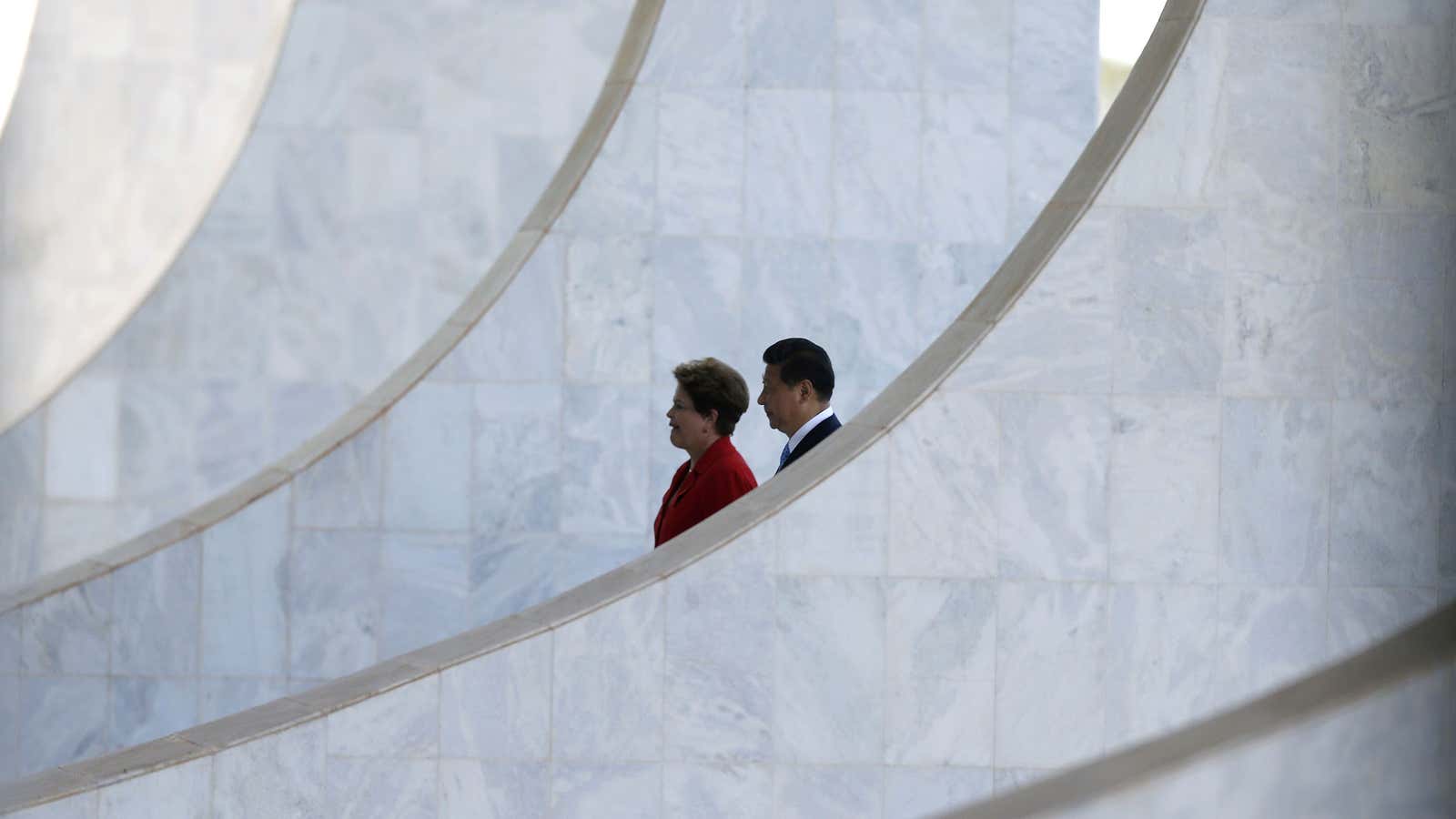Petroleo Brasileiro, Brazil’s troubled energy company, is getting the cold shoulder from financial markets as it struggles to overcome a costly corruption scandal and low oil prices.
On Oct. 15, the company said it was postponing an offer to sell $790 million of debentures because of “adverse conditions in the Brazilian capital markets,” the New York Times reports. A century bond Petrobras offered in June, its previous foray into the capital markets, has since plummeted in value as investors worry about the company’s financial health.
But one supporter staunchly remains by Petrobras’s side: China.
On Oct. 13, the company said it reached a deal with a unit of Industrial and Commercial Bank of China to lease two offshore platforms for $2 billion. Another Chinese agency, China Development Bank Corp., had already agreed to lend Petrobras another $5 billion in May.
The $7 billion from those agreements would cover only a fraction of Petrobras’s total debt, which is around $130 billion, per Fitch Ratings’ analyst Lucas Aristizabal.
China has long been interested in Brazil, first as a bountiful source of raw materials to power economic growth in the mainland, but more recently as a market for the services and products of its domestic companies.
From 2005 to 2014, China committed $22 billion to fund a variety of projects in Brazil, according to a database compiled by Inter-American Dialogue and Boston University’s Global Economic Governance Initiative.
Brazil’s economic and political turmoil has not scared China away. The two countries signed another 35 deals when Chinese premier Li Keqiang visited Brazil in May, according to Eurasia Group.
As economic growth slows down at home, finding business opportunities abroad has become even more important for Chinese leaders, Margaret Myers, who studies China’s activities in Latin America at Inter-American Dialogue, told Quartz.
“It’s a long-term strategy,” said Myers. “China is in Latin America to stay.”
